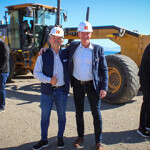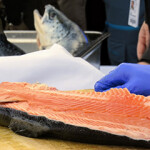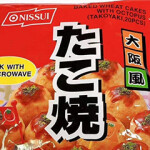Missing out on high spot rates, NRS posts lower Q2 earnings

Trondheim, Norway-headquartered Norway Royal Salmon reported lower earnings despite higher revenue as fixed-price contracts kept the company from capitalizing on high salmon spot prices.
Norway Royal Salmon reported operational earnings before interest and taxes (EBIT) of NOK 31.7 million (USD 3.2 million, EUR 3.2 million) for Q2 2022, a decrease from the NOK 94 million (USD 9.5 million, EUR 9.5 million) it earned in the corresponding period of 2021. However, the producer’s operating revenues increased from around NOK 1.4 billion (USD 141 million, EUR 141.3 million) to NOK 1.7 billion (USD 171.2 million, EUR 171.5 million).
NRS’s interim Q2 2022 report showed a Q2 decrease in operational EBIT due to low harvest volumes and a loss on open fixed-price contracts compared to the Fish Pool price level of NOK 131 million (USD 13.2 million, EUR 13.2 million). Just 12 percent of NRS Farming’s harvested fish were sold in the spot market in the second quarter.
At the same time, Q2’s overhead costs nearly trebled to NOK 56.8 million (USD 5.7 million, EUR 5.7 million), largely due to the culling of fish in two cages for fish-welfare reasons.
“The second quarter of 2022 has been a quarter with record-level salmon prices. NRS has harvested a low volume and as announced in the previous quarterly presentation we therefore have an unusually high share of the Norwegian volume on fixed-price contracts,” NRS CEO Charles Høstlund said. “The price achievement in relation to the spot price has thus been low and this significantly affects the result in this quarter.”
NRS’s Farming business harvested 4,471 metric tons (MT) of gutted-weight salmon in the quarter, a decrease of 54 percent year-on-year, while the total volume sold in the quarter amounted to 16,434 MT, down from 20,559 MT in Q2 2021.
NRS' Farming Norway division saw its operational EBIT fall from NOK 96.3 million (USD 9.7 million, EUR 9.7 million) to NOK 34.8 million (USD 3.5 million, EUR 3.5 million), and its operational EBIT per gutted-weight kilogram climbed to NOK 48.16 (USD 4.65, EUR 4.66), compared with NOK 12.49 (USD 1.26, EUR 1.26) in the corresponding quarter of 2021.
In the quarter, the segment acquired new production capacity through Norway’s traffic-light system, which granted additional salmon farming capacity in 2022 – and increased its maximum allowed biomass from 36,085 MT to 36,455 MT.
NRS's Farming Iceland division’s operational EBIT more than doubled to NOK 37.9 million (USD 3.8 million, EUR 3.8 million), and its operational EBIT per kilogram gutted weight quadruped to NOK 36.84 (USD 3.71, EUR 3.72).
For 2022, the total harvest volume of the group is expected to be 40,600 MT, a decrease of 18 percent compared with 2021.
In Q2, NRS’s Sales segment sold 18 percent less than in Q2 2021 at 15,405 MT. The segment had an operational EBIT before open fixed-price contracts of NOK 20.7 million (USD 2.1 million, EUR 2.1 million), up from NOK 3.7 million (USD 372,521, EUR 373,318) in Q2 2021. This equated to NOK 1.35 (USD 0.14, EUR 0.14) per kilogram sold in the period.
NRS' sales volumes to Eastern Europe decreased by 23 percent, to Asia by 38 percent and to Western Europe by 4 percent in the quarter. Its volumes sold in Norway decreased by 53 percent in the quarter.
In the Q1 2022, Western Europe accounted for 83 percent of NRS' export volumes, Asia for 11 percent, and Eastern Europe for 6 percent. Its domestic volume in Norway amounted to 11 percent of the total volume sold.
In Q2 2022, Norway Royal Salmon confirmed it will proceed with the acquisition of SalmoNor AS and merge with SalMar ASA. Høstlund said the merger plan between NRS and SalMar was approved at both general meetings.
“These are companies that have clear complementary activities in Norway, Iceland, and through offshore aquaculture. There is therefore a solid industrial rationale for the merger and a significant synergy potential,” he said. “Through smolt from our own smolt plant and the phasing out of sterile fish, NRS expects to gradually deliver more a competitive production cost and fewer biological challenges going forward. The foundation is therefore in place and the merger provides an even stronger basis for value creation and employment in the areas where NRS operates.”
For the first half of 2022, the group posted operating revenues of more than NOK 3.3 billion (USD 332.2 million, EUR 333 million), up from almost NOK 2.8 billion (USD 281.9 million, EUR 282.5 million) in H1 2021. Its operational EBIT for the period increased from NOK 153.9 million (USD 15.5 million, EUR 15.5 million) to NOK 165 million (USD 16.6 million, EUR 16.6 million). Its Farming segment harvested 18,829 MT, down from 25,119 MT, and posted a higher EBIT per kilogram of NOK 19.61 (USD 1.97, EUR 1.98).
NRS owns 36,455 MT MAB for salmon farming in Troms and Finnmark, and 21,800 MT maximum-allowed biomass for salmon farming and 5,300 MT maximum-allowed biomass for trout farming in Iceland through the company Arctic Fish. In addition, the group has minority interest in two associated Norwegian fish-farming companies which together own nine fish-farming licenses.
Photo courtesy of Norway Royal Salmon






Share